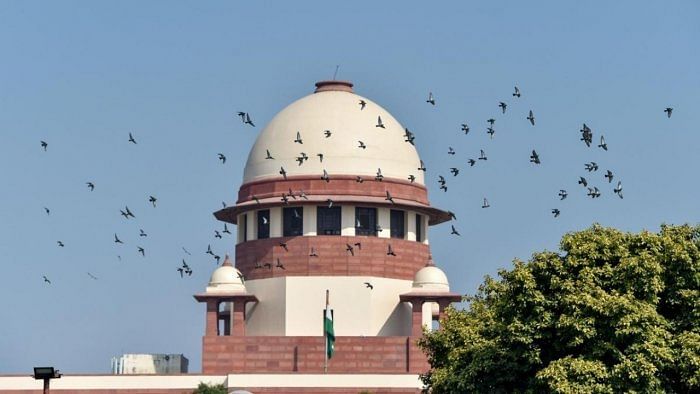
The Supreme Court on Friday warned the Centre and states of contempt action for silencing the people in the name of raising false alarms on shortage of medicine, oxygen and services, saying free flow of information during this humanitarian crisis would better help in fighting the second wave of the Covid-19 pandemic.
"We want to make it very very clear that if citizens communicate their grievances, we do not want a clampdown on information. If any citizen is harassed for making grievances for bed, or oxygen by the police, then we will take action," a bench presided over by Justice D Y Chandrachud said.
"Let this message go to all the police personnel. Let information flow freely. Let us hear the voices of our citizens and not clamp down on their voices," the bench added.
The court's remark came in view of the decision by the Uttar Pradesh administration to prosecute people under the National Security Act for allegedly raising false alarms on social media, which has emerged as a major platform for citizens to help people in distress.
During over four-hour-long hearing in a Suo Motu matter, the bench, also comprising Justices L Nageswara Rao and S Ravindra Bhat put some tough questions to the Union Government on issues of oxygen and medicines supplies, arrangement of vaccines for all including the Scheduled Castes and marginalised people, and its policy on taking care the needs of doctors and hospitalisation of patients, required to fight the raging second wave of Covid-19.
Even frontline doctors and healthcare workers were not getting beds for treatment. The healthcare infrastructure inherited over the past 70 years was not sufficient and the situation was grim, the bench noted.
The court also asked Solicitor General Tushar Mehta why the Union Government was not buying 100 per cent of vaccine doses and treating it as a universal immunisation programme in view of the "gravity of the pandemic" and to ensure "equality in distribution" of doses to the states.
It also wondered why differential pricing was fixed for the Centre and States and wanted to know how much money has been put in by the Union Government in companies producing the vaccines.
“Don't leave it to the manufacturers. How will they determine equity? Invoke your powers to see that additional facilities are created for vaccine manufacturing," the bench told Mehta.
The court also sought to know if the Centre had formed a proper policy in relation to admission guidelines of patients in hospitals.
It also said, "Doctors and nurses who are working tirelessly must be paid more whether they are in public or private hospitals."
The healthcare sector has come to a breaking point and retired doctors or officials could be re-employed in this crisis, it added.
The court also favoured giving licences to multiple manufacturers for producing essential drugs including Remdesivir.
The bench said it would pass detailed orders on all the issues on Saturday.
